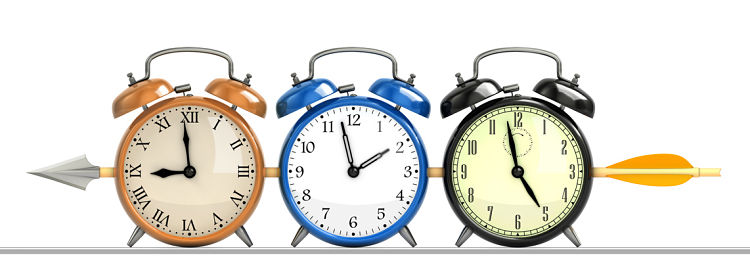Worried that it’s too late to file bankruptcy?
You’ve put off considering bankruptcy, hoping to tough it out, or hoping for a miracle.
But at some point, time runs out: you’ve been served with a lawsuit; judgment has been entered against you; or even, a garnishment appears on your paycheck.
Is it too late to file bankruptcy? Have you’ve waited too long for bankruptcy to help?
While I don’t recommend procrastination, at almost every stage of debt collection, bankruptcy can save your bacon, or at least what’s left of your bacon.
Served with a lawsuit
When a summons and complaint lands on your doorstep, the clock starts ticking on the time you have to file a written answer to the complaint.
Skip filing an answer and the outfit suing you wins whatever the complaint prays for.
Filing bankruptcy at this point stops the lawsuit in its tracks. The automatic stay that comes, automatically(!), with the bankruptcy case forbids further action in that suit without express court permission.
Assuming the debt doesn’t involve dishonesty or family support (or several more, less likely things), any liability you have on the debt is discharged at the end of your bankruptcy case. End of story.
So, it’s not to late to file if you’ve been sued.
You lose a lawsuit
Once a judgment is entered against you, bankruptcy can still help.
Just because a court has determined that you owe the money and the creditor is entitled to all the legal remedies to get its money, the debt may still be discharged in bankruptcy.
The kinds of debts that can’t be discharged are based on the nature of the debt, not where the debt is in the collection process. Bankruptcy law says that you can’t escape your obligation to support your family or pay your recent taxes, or escape debts created by fraud or other serious dishonesty.
But garden variety credit cards, loans, back rent, and medical bills can be discharged, even after there is a judgment entered for the debt.
Wait until judgment is entered and there are some consequences that might limit relief in bankruptcy.
Chapter 13 has limits on the amount of debt you can owe and qualify for Chapter 13. Once a judgment is entered, the amount of the debt is fixed and it might put you over the debt limits.
Another limiting consequence of waiting til judgment is entered is that a finding by a court that you committed fraud or misrepresentation may require a bankruptcy court to make the same finding. The debt may then be excluded from the discharge.
With those exceptions, it’s not too late to file bankruptcy if a judgment has been entered against you.
Creditor gets a judgment lien
Bankruptcy can change the balance of power even if you’ve waited til the creditor with a judgment has perfected a judgment lien against your assets. How much change is possible depends on the exemptions available when you file bankruptcy.
One of the basic principles of bankruptcy is that the bankruptcy discharge eliminates your personal liability, but liens survive the bankruptcy attached to the assets you had when you filed.
But there’s hope: you are permitted to avoid judgment liens that interfere with any exemptions you could claim in an asset. It doesn’t matter how fresh, or how old, the lien is. If it prevents you from getting the benefit of an exemption, you can avoid it.
Avoiding a lien requires filing a motion in your bankruptcy case. It doesn’t happen automatically. And if you forget to do it in your bankruptcy, you can reopen the bankruptcy case in the future to file the motion.
It’s not too late to discharge your personal liability for a judgment and eliminate the judgment lien as well in bankruptcy.
Your wages are garnished
By the time your wages are threatened with garnishment, your creditor has a judgment. That judgment brings with it the power allowed by state law to collect that judgment.
But just like each scenario we’ve discussed here, a garnishment can be stopped by filing bankruptcy and getting the automatic stay in place.
Your creditor may be entitled to what ever wages you have earned between the time the garnishment was served on your employer and the day you file bankruptcy. But gong forward, your wages are yours.
Bankruptcy law also lets you recover amounts your creditor got in the 90 days before you filed bankruptcy. Wait longer than 90 days, and you lose the right to reclaim the garnished funds.
Timing is up to you
At almost every point in a collection suit, filing bankruptcy can stop the bleeding and allow you to eliminate your debt. The discharge makes that debt forever uncollectible from you and your assets.
There is some damage to your finances that bankruptcy can’t undo. Borrow against your home or invade your retirement assets to pay bills that you ultimately discharge in bankruptcy, and you have no legal ways to get that money back.
If you’re facing debts you can’t pay, make a plan. Early is better than late.
More
The advice you need before making changes
Spending money before you file bankruptcy
When it’s smart to wait to file
Image courtesy of Flickr and openDemocracy






